The Annals of Mathematics is a mathematical journal published every two months by Princeton University and the Institute for Advanced Study.
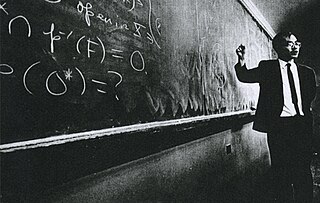
Hing Tong was an American mathematician. He is well known for providing the original proof of the Katetov–Tong insertion theorem.
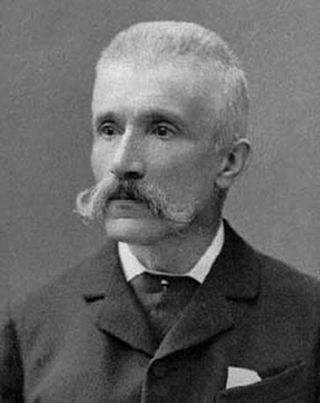
Francesco Brioschi was an Italian mathematician.

Barnaba Tortolini was a 19th-century Italian priest and mathematician who played an early active role in advancing the scientific unification of the Italian states. He founded the first Italian scientific journal with an international presence and was a distinguished professor of mathematics at the University of Rome for 30 years. As a mathematics researcher, he had more than one hundred mathematical papers to his credit in Italian, French, and German journals.

Enzo Martinelli was an Italian mathematician, working in the theory of functions of several complex variables: he is best known for his work on the theory of integral representations for holomorphic functions of several variables, notably for discovering the Bochner–Martinelli formula in 1938, and for his work in the theory of multi-dimensional residues.
Carlo Rosati was an Italian mathematician working on algebraic geometry who introduced the Rosati involution.
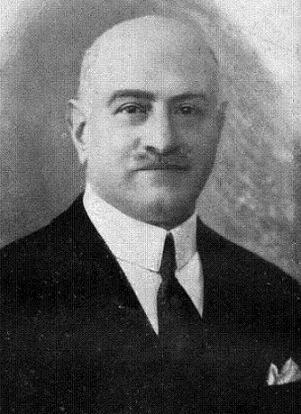
Gustavo Sannia was an Italian mathematician working in differential geometry, projective geometry, and summation of series. He was the son of Achille Sannia, mathematician and senator of the Kingdom of Italy.
Dario Graffi was an influential Italian mathematical physicist, known for his researches on the electromagnetic field, particularly for a mathematical explanation of the Luxemburg effect, for proving an important uniqueness theorem for the solutions of a class of fluid dynamics equations including the Navier-Stokes equation, for his researches in continuum mechanics and for his contribution to oscillation theory.
Claudio Baiocchi was an Italian mathematician. He was a professor at the University of Pavia and since the 1990s he was a professor of mathematical higher analysis at the Sapienza University.
Roberto Conti was an Italian mathematician, who contributed to the theory of ordinary differential equations and the development of the comparison method.
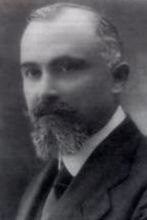
Orazio Tedone was an Italian mathematical physicist. He is perhaps best known for the Larmor–Tedone formulae for solving Maxwell's equations.
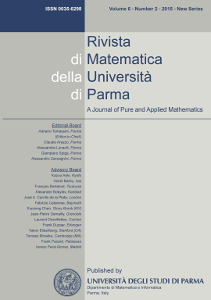
The Rivista di Matematica della Università di Parma is a peer-reviewed mathematics journal published by the Department of Mathematics and Computer Science of the University of Parma, established in 1950. It is devoted to publication of original research and survey papers in all areas of pure and applied mathematics: it also publishes workshops and conferences proceedings, following the tradition behind its foundation.
The Rendiconti di Matematica e delle sue Applicazioni is an open access peer-reviewed mathematics journal, jointly published by the "Guido Castelnuovo" Department of Mathematics of the Sapienza University of Rome and by the Istituto Nazionale di Alta Matematica Francesco Severi, established in 1913. The Journal started his publications a year after, in 1914, and his first director was Vito Volterra.

The Annales de Mathématiques Pures et Appliquées, commonly known as the Annales de Gergonne, was a mathematical journal published in Nimes, France from 1810 to 1831 by Joseph Diez Gergonne. The annals were largely devoted to geometry, with additional articles on history, philosophy, and mathematics education showing interdisciplinarity.

Onorato Nicoletti was an Italian mathematician.
Francesco Sbrana was an Italian applied mathematician and mathematical physicist.
Giulio Pittarelli was an Italian mathematician, specializing in descriptive geometry and algebraic geometry.
Nuncius: Journal of the Material and Visual History of Science is a triannual peer-reviewed academic journal covering the history of science, especially the "historical role of material and visual culture in science". The journal was established in 1976 by Maria Luisa Righini Bonelli as the Annali dell'Istituto e Museo di storia della scienza di Firenze. The journal changed its publisher in 2011. It is published by Brill Publishers and the editor-in-chief is Elena Canadelli of the University of Padua, Italy.
Alessandra Lunardi is an Italian mathematician specializing in mathematical analysis. She is a professor in the department of mathematics and computer science at the University of Parma. She is particularly interested in Kolmogorov equations and free boundary problems.
Pure and Applied Geophysics is a monthly peer-reviewed scientific journal that covers research in the field of geophysics. It is published by Birkhäuser and the editors-in-chief are Carla F. Braitenberg, Alexander B. Rabinovich, and Renata Dmowska. The journal was established in 1939 as Geofisica Pura e Applicata before obtaining its current title in 1964.









